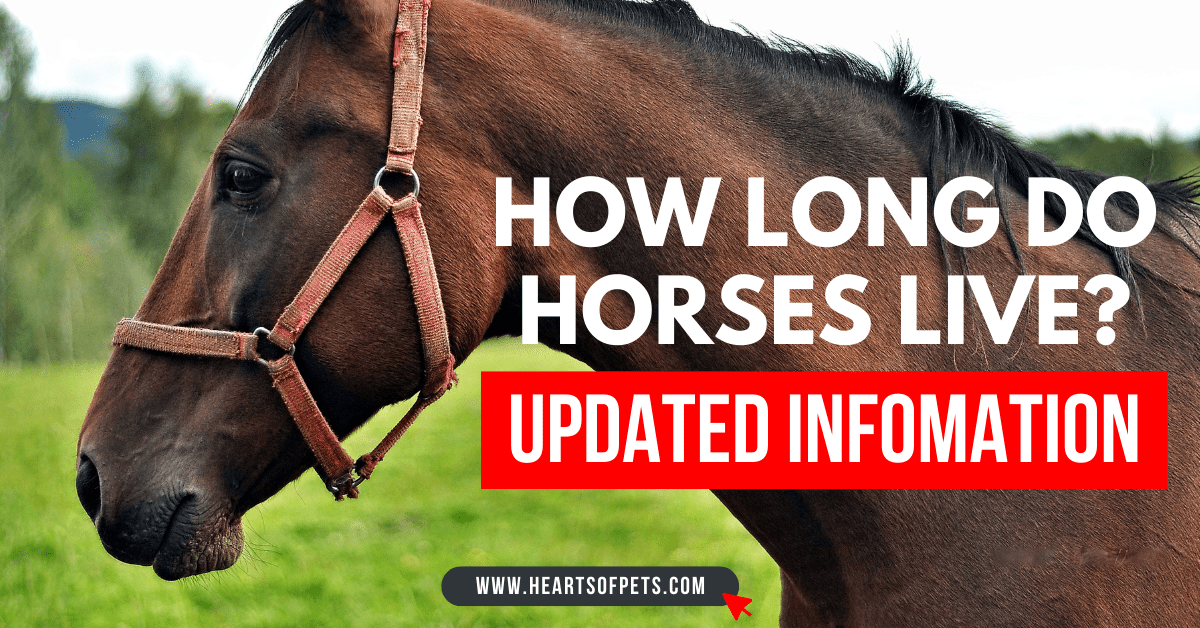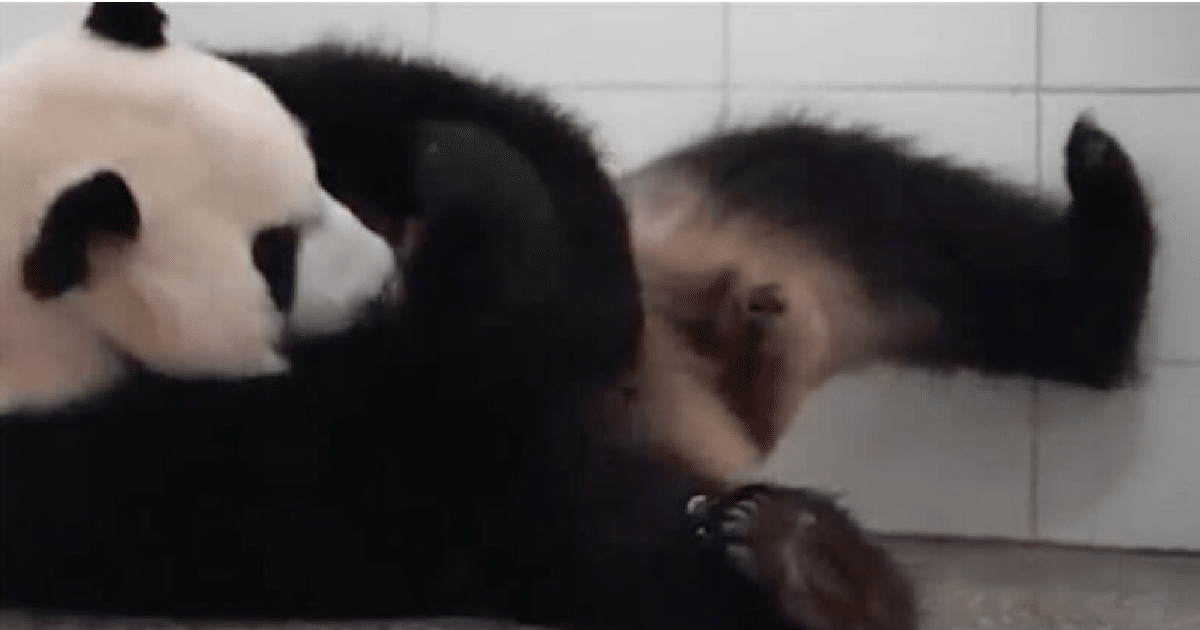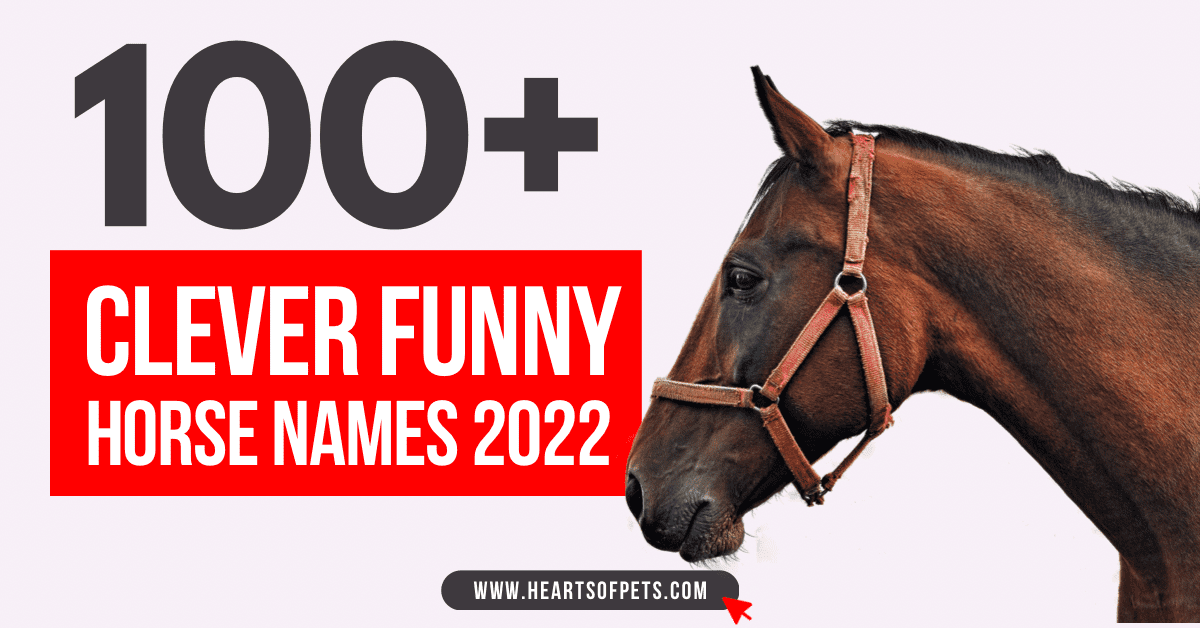Giving our beloved furry friends the right food is crucial for their health and well-being. As a hamster owner, you may be wondering if it’s safe to feed your hamster guinea pig food. After all, they may seem similar, but there are important differences in their nutritional needs.
While guinea pig food is formulated with higher levels of vitamin C, it lacks the necessary levels of protein and vitamin E that hamsters require. Feeding hamsters guinea pig food can lead to health issues such as protein deficiencies and muscular disorders. It’s essential to provide a well-balanced and appropriate diet for your hamster to ensure their optimal health.
Can Hamsters Eat Guinea Pig Food? No, they can’t – it can be harmful.
- Hamsters should not eat guinea pig food due to their different nutritional needs.
- Guinea pig food has higher levels of vitamin C but lacks adequate protein and vitamin E for hamsters.
- Feeding hamsters guinea pig food can lead to protein deficiencies and muscular disorders.
- Provide a balanced diet for your hamster that includes seeds, cereals, insects, and vegetables.
- Consult with a veterinarian for specific dietary recommendations for your hamster.
Why Can’t Hamsters Have Guinea Pig Food?
Hamsters and guinea pigs have different dietary needs due to their unique geographical origins. While guinea pigs require higher levels of vitamin C to prevent scurvy, hamsters need a diet rich in protein, vitamin E, and balanced nutrients. Guinea pig food does not meet these requirements and can lead to protein deficiencies and muscular disorders in hamsters. It’s crucial to provide the appropriate diet for hamsters to ensure their overall health and well-being.
To understand why hamsters can’t have guinea pig food, we need to examine the nutritional differences between the two. Guinea pigs naturally produce very little vitamin C on their own and require a dietary source to prevent scurvy—a disease caused by vitamin C deficiency. Due to this, their food is specially formulated with higher levels of vitamin C to meet their needs.
On the other hand, hamsters have different dietary requirements. They need a diet that provides them with adequate protein for growth, repair, and overall body functioning. Protein deficiency can lead to stunted growth, poor weight gain, and weakened immune system in hamsters.
Hamsters also require sufficient levels of vitamin E, which is crucial for their reproductive health and acts as an antioxidant to protect their cells from damage. Lack of vitamin E can result in neurological disorders and muscle weakness in hamsters.
Therefore, feeding hamsters guinea pig food can be detrimental to their health. It can lead to protein deficiencies, vitamin E deficiencies, and subsequent muscular disorders. It’s essential to provide hamsters with a diet that meets their unique dietary needs, which includes a balanced mix of seeds, grains, fresh fruits, vegetables, and occasional treats like lean cooked meat.
Can Hamsters Have Commercial Diets?
When it comes to providing the best nutrition for your hamster, commercial diets specifically formulated for hamsters are the way to go. These diets are designed to meet their unique nutritional needs and ensure they receive a balanced and optimal diet.
Commercial hamster food, such as hamster pellets, is specially formulated to provide the right balance of protein, carbohydrates, fat, and fiber that hamsters require. These pellets are an essential part of a hamster’s diet and should be the primary source of food.
However, it’s important to supplement your hamster’s diet with fresh vegetables and fruits. These supplemental foods provide additional nutrients, vitamins, and minerals to support your hamster’s overall health. Offering a variety of vegetables and fruits ensures that your hamster receives a diverse range of nutrients.
When selecting supplemental foods for your hamster, make sure to avoid foods that are toxic to them. Some safe options include small portions of carrots, apples, strawberries, and cucumbers. Remember that these treats should be given in moderation as they should not make up a significant portion of your hamster’s diet.
Is Wet or Powdered Food Good for Hamsters?
When it comes to feeding our furry friends, it’s important to choose the right food for their specific needs. For hamsters, wet or powdered food is generally not recommended unless advised by a veterinarian. While wet food may seem convenient or appealing, it can pose a number of risks to your hamster’s health.
One of the main concerns with wet food is the potential for dental problems. Hamsters naturally have gnawing instincts to keep their teeth filed down, but wet food lacks the necessary texture to support this. Over time, a diet solely consisting of wet food can lead to overgrown teeth, which can cause pain, difficulty eating, and other dental complications.
Another concern with wet food is the increased risk of mold and bacterial growth. Moisture-rich environments are ideal breeding grounds for harmful microorganisms. If wet food is not consumed in a timely manner or not stored properly, it can quickly become contaminated and lead to digestive issues or infections in your hamster.
To ensure the health and well-being of your hamster, it’s best to stick to a balanced diet of commercial pellets and fresh foods. Commercial pellets are specifically formulated to meet the nutritional needs of hamsters and are designed to promote good dental health. Additionally, offering fresh fruits and vegetables as treats can provide added nutrition and variety to their diet.
Remember, when it comes to your hamster’s diet, it’s always a good idea to consult with a veterinarian for specific recommendations. They can provide personalized guidance based on your hamster’s age, breed, and overall health needs.
What Hamsters Should Be Eating
When it comes to a hamster’s diet, it’s important to provide them with the right balance of nutrients for their overall health and well-being. A high-quality commercial food formulated specifically for hamsters should be the foundation of their diet. These commercial foods are designed to meet the nutritional needs of hamsters, providing the right balance of proteins, carbohydrates, fats, and fiber.
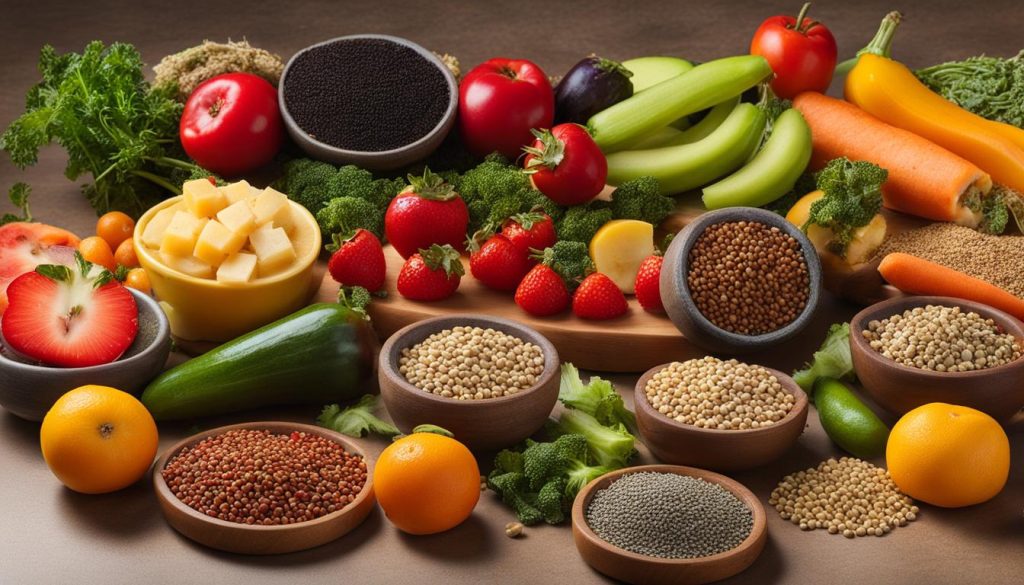
In addition to commercial food, hamsters should also be offered fresh fruits and vegetables as treats. These not only add variety to their diet but also provide them with essential vitamins and minerals. It’s important to offer a wide variety of fruits and vegetables to ensure hamsters get all the necessary nutrients they need.
When it comes to protein, hamsters can also benefit from occasional treats of cooked and cooled meats. However, it’s important to note that meat should not be a staple in their diet and should be given sparingly as treats.
Remember to always consult with a veterinarian or a knowledgeable expert to ensure you are providing your hamster with a balanced and appropriate diet. By offering high-quality commercial food, fresh fruits and vegetables, and occasional treats, you can ensure your hamster is getting the nutrition they need for a happy and healthy life.
Can Feeding Guinea Pig Food Harm Hamsters?
Feeding guinea pig food to hamsters can have serious consequences for their health. While it may seem convenient to offer them the same food, guinea pig food is not suitable for hamsters due to their different nutritional needs.
Guinea pig food contains higher levels of vitamin C, which can be harmful to hamsters. Unlike guinea pigs, hamsters do not require as much vitamin C in their diet. Excessive vitamin C intake can lead to digestive issues and other health problems in hamsters.
Furthermore, guinea pig food is deficient in protein and vitamin E, which are essential for the well-being of hamsters. Regular consumption of guinea pig food can result in protein deficiencies and muscular disorders in hamsters.
To ensure the health and longevity of your hamster, it’s crucial to provide them with a proper hamster diet that meets their specific nutritional needs. A balanced hamster diet should include commercial hamster food that contains the right amount of protein, carbohydrates, fats, and fiber.
Supplementing their diet with fresh fruits and vegetables is also important to provide additional vitamins and minerals. However, it’s essential to avoid feeding them guinea pig food as a regular part of their diet.
Consulting with a veterinarian can help you create a suitable diet plan for your hamster based on their age, breed, and individual needs. Remember, a well-rounded and balanced diet is key to keeping your furry friend healthy and happy.
Can Hamsters Eat Gerbils Food?
Hamsters can eat gerbil food as their dietary needs are similar. Both hamsters and gerbils have comparable nutritional requirements, and their diets can overlap to a certain extent. However, it is important to note that hamsters should primarily be fed their specifically formulated commercial food to ensure they receive all the necessary nutrients for optimal health.
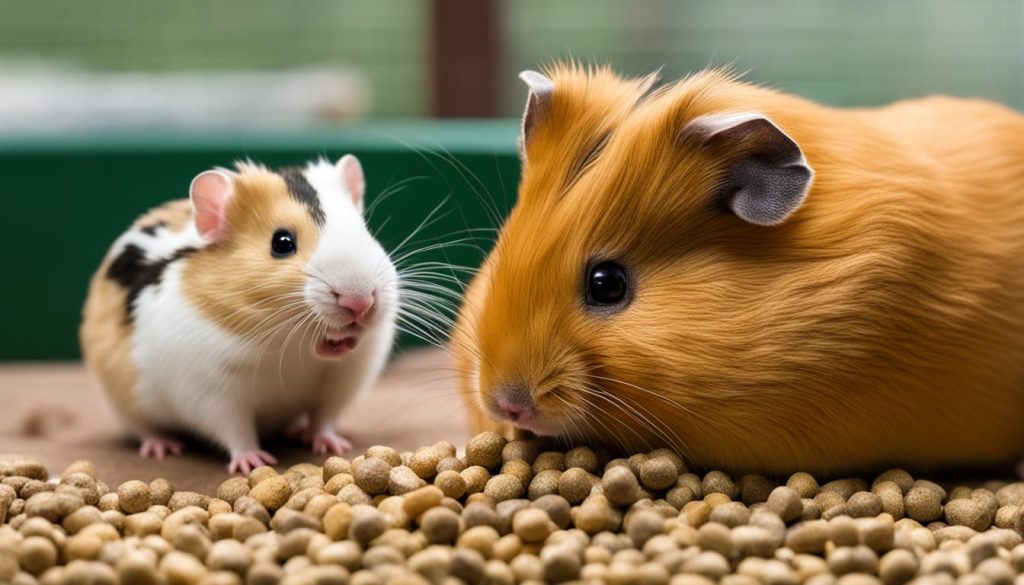
While occasional consumption of gerbil food is acceptable for hamsters, it should not replace their primary diet which consists of commercial hamster food. These commercially available hamster food options are specifically designed to cater to the unique dietary needs of hamsters, providing them with the appropriate levels of protein, carbohydrates, fat, and fiber.
Feeding hamsters gerbil food on a regular basis may lead to an imbalanced diet and potentially result in nutritional deficiencies. Therefore, it is recommended to prioritize commercial hamster food as the main source of nutrition for hamsters, supplemented with occasional servings of gerbil food as a treat or variety in their diet.
Ensuring that hamsters receive the recommended food for their species is crucial for their overall health and well-being. Consulting a veterinarian or doing thorough research on appropriate hamster diets can provide valuable insights into feeding hamsters a balanced and nutritious diet.
Conclusion
It is crucial to provide hamsters with a diet that meets their specific nutritional needs. Feeding them guinea pig food can lead to deficiencies in protein and vitamin E, while the excess of vitamin C can be harmful to their health. Instead, it is recommended to offer hamsters a balanced and varied diet.
Commercial hamster food, specifically formulated to provide the correct balance of proteins, carbohydrates, fats, and fiber, should be the primary source of nutrition. Supplementing this with fresh fruits and vegetables ensures that hamsters receive essential vitamins and minerals.
Remember, a well-balanced diet is essential for the overall health and well-being of hamsters. Consult with a veterinarian to ensure you are providing the appropriate diet for your hamster, and with proper care, your furry friend will thrive.
FAQ
Can hamsters eat guinea pig food?
No, hamsters should not eat guinea pig food. Guinea pig food is formulated with higher levels of vitamin C and lacks the necessary levels of protein and vitamin E that hamsters require. Feeding hamsters guinea pig food can lead to health issues such as protein deficiencies and muscular disorders.
Why can’t hamsters have guinea pig food?
Hamsters and guinea pigs have different dietary needs. Guinea pigs require higher levels of vitamin C to prevent scurvy, while hamsters need a diet rich in protein, vitamin E, and balanced nutrients. Guinea pig food does not meet these requirements and can lead to protein deficiencies and muscular disorders in hamsters.
Can hamsters have commercial diets?
Yes, it is recommended to provide hamsters with commercial hamster food or diets formulated for hamsters and gerbils. These commercial diets should contain the right balance of protein, carbohydrates, fat, and fiber to meet the nutritional needs of hamsters. Additionally, hamsters should be supplemented with fresh vegetables, fruits, and small amounts of treats like sugarless cereals or grains.
Is wet or powdered food good for hamsters?
Wet or powdered food for hamsters is generally not recommended unless advised by a veterinarian. Wet food can lead to dental problems and increases the risk of mold and bacterial growth, which can cause infections in hamsters. It’s best to stick to a balanced diet of commercial pellets and fresh foods for hamsters to ensure their overall health and well-being.
What should hamsters be eating?
Hamsters should primarily be eating quality commercial food formulated specifically for hamsters. This commercial food should provide the necessary balance of proteins, carbohydrates, fats, and fiber. In addition to commercial food, hamsters should also be fed fresh fruits and vegetables as treats for added nutrition and stimulation. Meat can also be given as an occasional treat, but it should be fully cooked and cooled before offering it to hamsters.
Can feeding guinea pig food harm hamsters?
Yes, feeding guinea pig food to hamsters regularly can have negative consequences for their health. Guinea pig food contains higher levels of vitamin C, which can be harmful to hamsters. Additionally, guinea pig food lacks the necessary levels of protein and vitamin E that hamsters require. Regular consumption of guinea pig food can lead to protein deficiencies and muscular disorders in hamsters.
Can hamsters eat gerbil food?
Yes, hamsters can eat gerbil food as their dietary needs are similar. Hamsters and gerbils have comparable nutritional requirements, and their diets can overlap. However, it’s essential to feed hamsters their specifically formulated commercial food to ensure they receive all the necessary nutrients. While gerbil food can be given to hamsters occasionally, it should not replace their primary diet.




